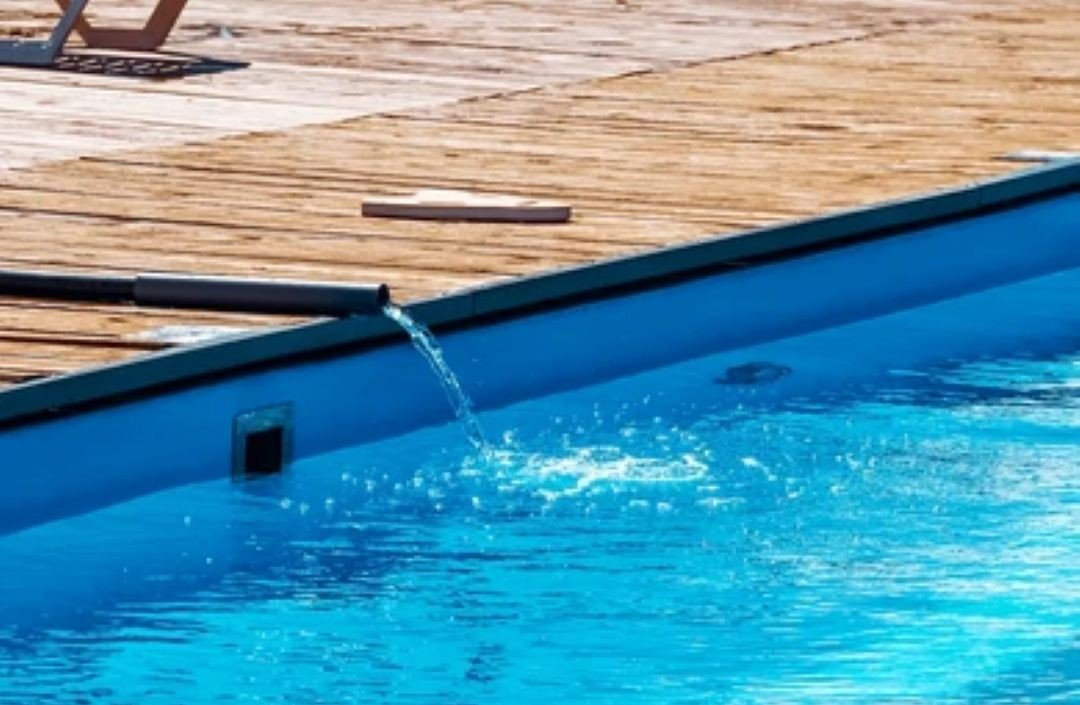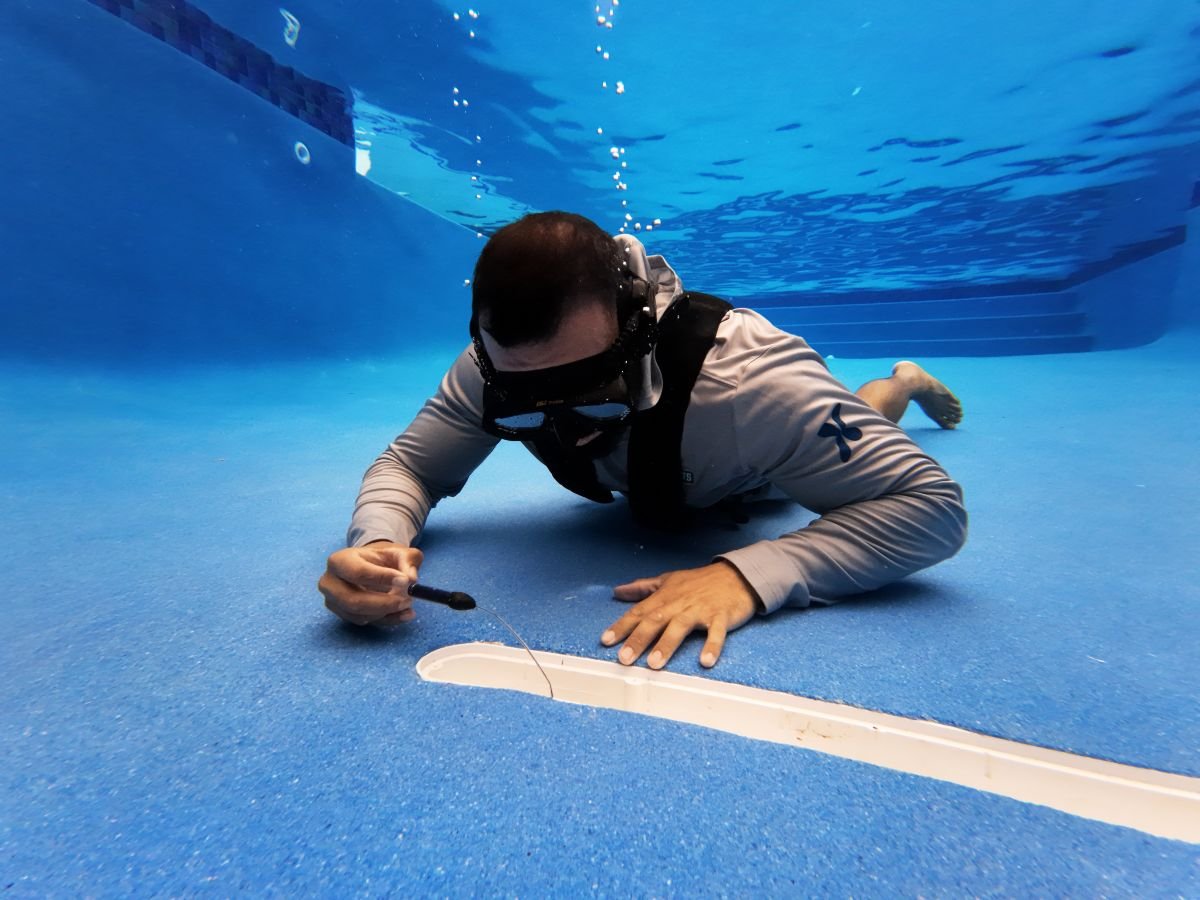Owning a pool in Broward County, FL, brings joy and relaxation, but it also requires regular maintenance to keep it in pristine condition. One often overlooked aspect of pool care is grout joint repair. The grout that fills the spaces between tiles not only enhances the pool’s aesthetic appeal but also serves a vital function in preventing water leaks and protecting the pool’s structural integrity.
Over time, exposure to sunlight, chemicals, and weather can deteriorate grout, leading to unsightly cracks, loose tiles, and potential water loss. This explores the importance of grout joint repair, how to identify signs of damage and instructions for effective repairs.
Maintaining a pool in Broward County, FL, is essential for ensuring a pleasant swimming experience. One crucial aspect of pool maintenance is grout joint repair. Over time, the grout between pool tiles can deteriorate, leading to water leaks and structural damage.
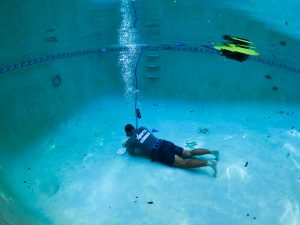
Prevents Water Leaks: Water leaks can occur when grout is cracked or missing, allowing water to seep behind tiles. This not only increases water bills but also leads to more extensive repairs if left unaddressed.
Maintains Pool Aesthetics: A well-maintained pool with fresh grout looks inviting. Deteriorating grout can make your pool appear unkempt and may even discourage use.
Extends Pool Lifespan: Regular maintenance, including grout repairs, can significantly prolong your pool’s lifespan. Addressing minor issues prevents them from escalating into major problems.
Some common indicators that your pool grout may need attention:
Cracks or Chips in the Grout: If you notice visible cracks or chips, it’s time to take action. Even small cracks can worsen over time, leading to bigger issues.
Loose or Missing Tiles: Tiles that are loose or have fallen off can indicate weakened grout. This can lead to water leaks and structural concerns.
Water Loss: If your pool is losing water without explanation, damaged grout could be the culprit. Check for wet areas around the pool, which can signal hidden leaks.
How to Repair Pool Grout Joints
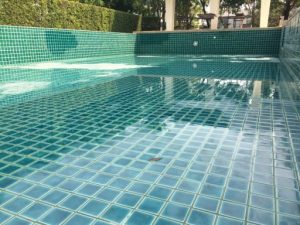
Repairing pool grout joints can be a manageable DIY task.
Before beginning repairs, thoroughly clean the grout joints. Use a brush, vinegar, or a specialized cleaning solution to eliminate dirt, algae, and old grout remnants. This step is vital for proper adhesion of new grout.
Use a grout saw or a multi-tool with a grout removal blade to carefully remove damaged or loose grout. Be cautious not to damage surrounding tiles during this process.
Mix the grout according to the manufacturer’s instructions. Using a grout float, apply the new grout evenly into the joints. Ensure the grout fills the gaps completely.
After applying the grout, use a damp sponge to smooth the grout lines and remove excess material from the tile surfaces. This step is crucial for achieving a clean finish.
Follow the manufacturer’s guidelines for curing times. Proper curing is essential for the grout to achieve its maximum strength.
Once the grout has fully cured, apply a high-quality grout sealant. This protective layer helps prevent moisture intrusion and staining, extending the life of the grout.
While many repairs can be done by homeowners, some situations may warrant professional assistance:
If a large portion of grout is missing or if there are significant cracks, it’s best to consult a professional. They can ensure the repair is done thoroughly and effectively.
Sometimes, grout problems may signal deeper structural issues with your pool. A professional inspection can help diagnose these issues and provide appropriate solutions.
If you’re unsure about tackling grout repair or simply don’t have the time, hiring a professional can save you stress and ensure a quality job.
Tips for Maintaining Your Pool Grout
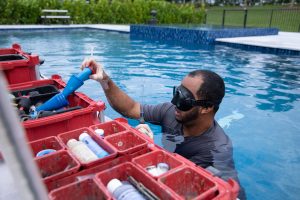
Keeping your grout in good condition requires regular attention.
Clean the grout regularly using a mild detergent and water. Avoid harsh chemicals that can damage the grout. A soft brush can help keep the grout lines clear of debris and algae.
Perform periodic inspections of the grout lines. Look for cracks, discoloration, or any signs of wear. Addressing issues early can prevent costly repairs later.
Applying a high-quality sealer after grout repairs is essential. This creates a barrier against moisture and stains, prolonging the life of the grout.
Maintaining balanced water chemistry is crucial for the longevity of your pool. High levels of chlorine or imbalanced pH can lead to grout deterioration. Regularly test and adjust your pool’s chemical levels.
If you suspect any leaks, address them as soon as possible. Early intervention can prevent extensive damage and costly repairs.
Conclusion
Pool grout joint repair is vital for maintaining a beautiful and functional pool, especially in Broward County, FL, where the climate can take a toll on pool maintenance. By addressing grout issues promptly, you can avoid costly repairs and enjoy a stunning, leak-free pool for years to come. Whether you choose to tackle repairs yourself or hire a professional, regular maintenance will ensure your pool remains a welcoming oasis for family and friends.



